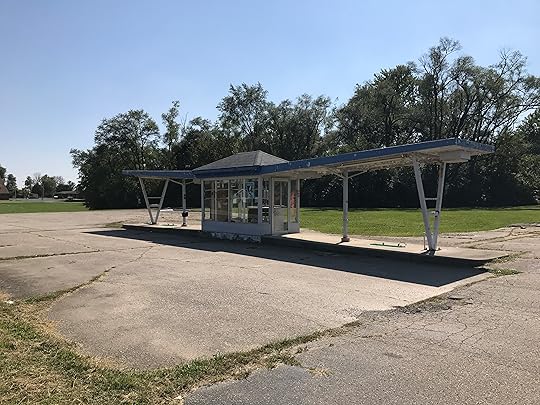Risking to Fail
I don’t plan how to teach college classes so much as I plan how to tell them. For me, each class is a story, the students are the protagonists, and the topic is the plot arc. Stepping into class is like opening to Page 1, and there’s always an activity or a question that’s off enough to get them wondering, but interesting enough to get them going (and turn to Page 2).
“Design a stray cat catcher using what you’ve got in your backpacks.” This is the opener to the prototype class.
Today’s class on clarifying problems began with a fixer-upper: Your team is a real estate investment firm that has just purchased this property in a small Midwestern town seeing the beginnings of revitalization. How would you renovate it?

And last week’s class on failure opened with a simple question: What would you do if you could not fail? So many interesting answers. At least one student in each class said, “Fly,” (by way of arm flapping, I presume). A few went big – cure cancer, solve world hunger – and one student’s mind was still stuck on his last conversation – “yell back at my mom.” Some used the question to vent their college angst – never study for another test, stop coming to class, graduate – but most stayed normal. Play piano. Do a back flip. Invest in penny stocks.
Failure is the most important story I tell all semester, and we begin with this question because it’s much more about their “fear of” failure than actual failure. Students rarely fail because they rarely risk to fail. They say no before they try, and the first time their path dips below their expected trajectory of success, they’re out.
You’re not the only one to experience dips, I tell them. Protagonists like a friend on their journey, and so I share some success stories to keep company. Colonel Sanders pitched KFC 1,000 times before he landed an investor, which means? He failed 999 times. JK Rowling landed a publisher on her 13th attempt, which means? She failed a dozen times.
“But Professor Troy – these are all stories of people who ultimately succeeded. What about the ones who didn’t? What do they have to show for their failure?”
A good question can twist a plot – in this case, for the students and teacher. I’d taught this class a dozen times, and none of my protagonists had ever questioned the help I offered. I didn’t know what to say, and I paused long enough to wonder whether I was going to say anything before we closed story time for the day.
Enter the flashback. Gotta love flashbacks. They’re not always 20-20, but they bring way more perspective than the present situations that make our pits sweat. This flashback was of me and my writing buddy sitting on the couch in my family room. It’d been a particularly low week, and we were commiserating about work stuff – it was slow-going, the outcome wasn’t justifying the input, the pay was bad, the hours were long … take your pick. Writing is a job like any other.
And it all ended in a pile of laughter.
“But what else are we going to do?”
The admission was mutual and exhilarating – an emancipation from factors that seem to bind but at the end of the day don’t get a vote in whether I set the alarm to write the next day. Writing is the only thing I’ve ever really wanted to do. It’s the only thing I can do with unique proficiency, and it’s certainly the only thing that keeps my attention for longer than a couple years (my average staying power at most other jobs). So, yeah. What else was I going to do?
It was a good question. I had my answer. And I had two minutes left to offer it to my student.
“Catch in your mind the phrase ‘small potatoes’ and knock that down 1,000 degrees. That’s the status of your professor in the publishing world. Chances are this won’t change, and I knew these chances when I wrote my book. But I didn’t write for these outcomes. I wrote my book because I had a story that pleased me to tell and might please others to read. To my knowledge, around 500 people have taken me up on my offer since I published a couple months ago. This is a failure statistic in the publishing world. But what if I’d held back? What if I’d said those 500 weren’t worth it unless they morphed into 50,000? I wouldn’t have done it, and I would have failed.
“Failure is waste – a waste of time, talent, energy. When we hold back from what we know we should be doing because we fear our efforts will fall below subjective and fleeting metrics, we fail ourselves. We waste our time.
“Don’t fear failure. Fear never getting in the game.”
I looked at the clock. My time was up, and the story was done.



